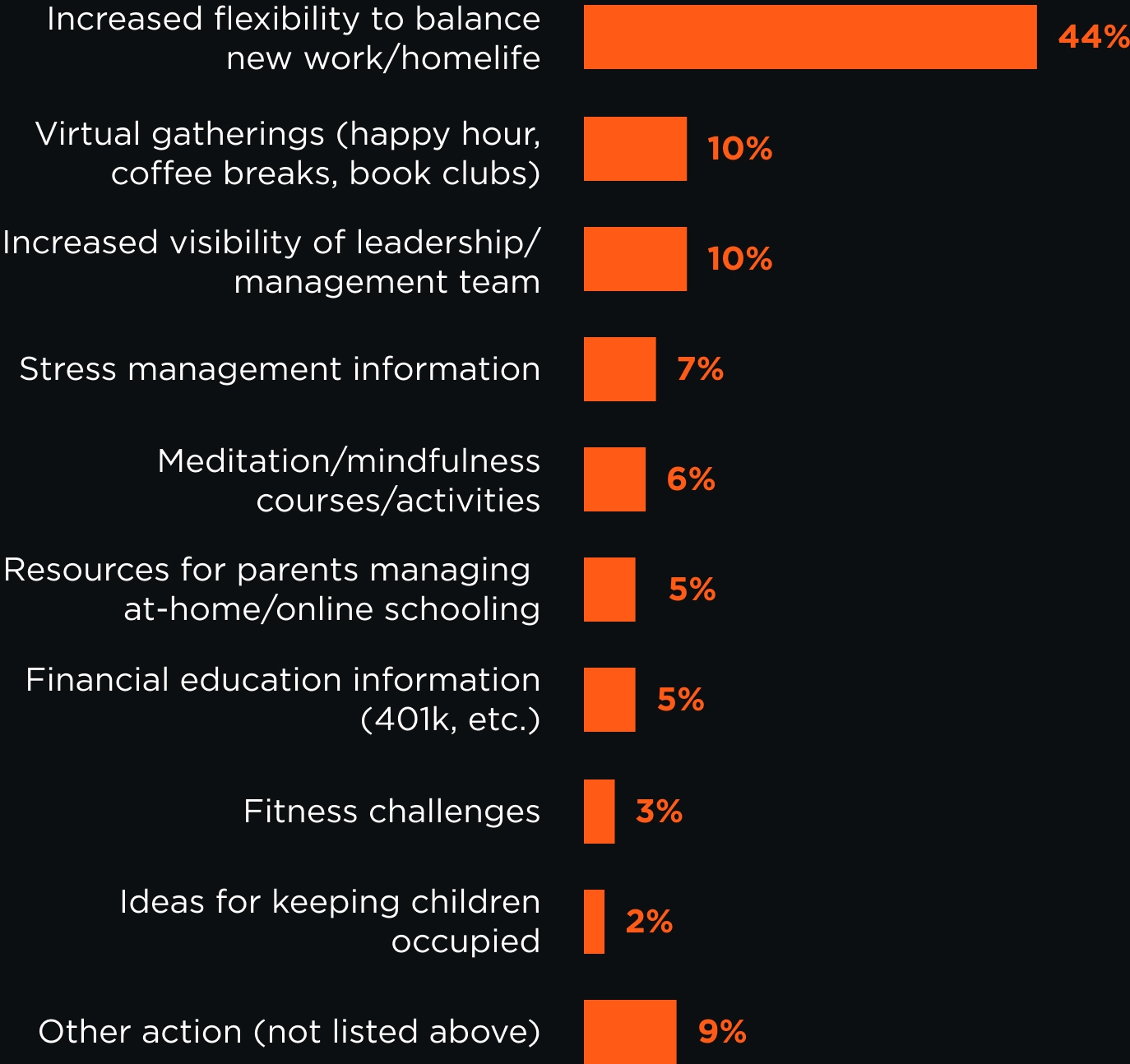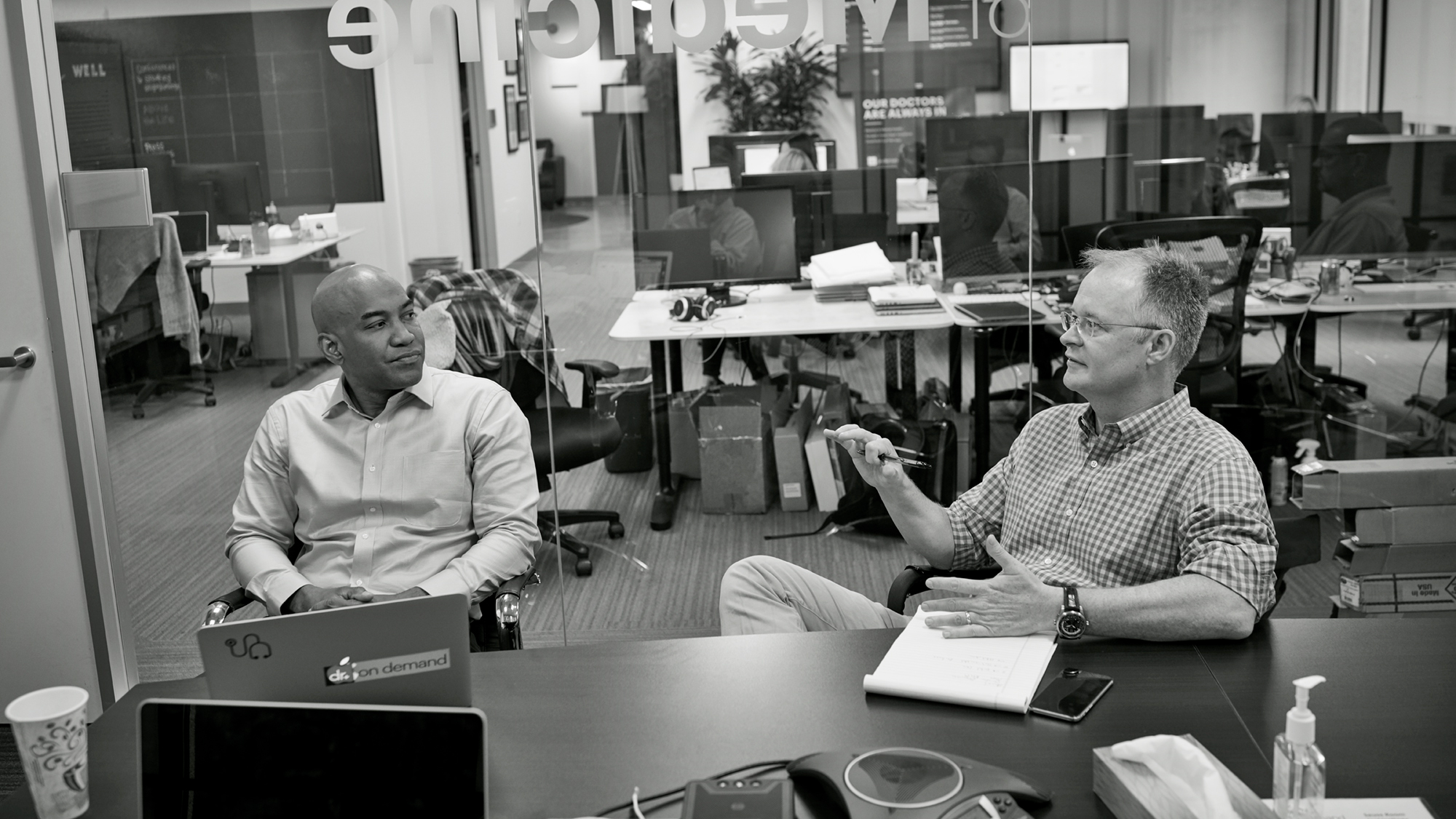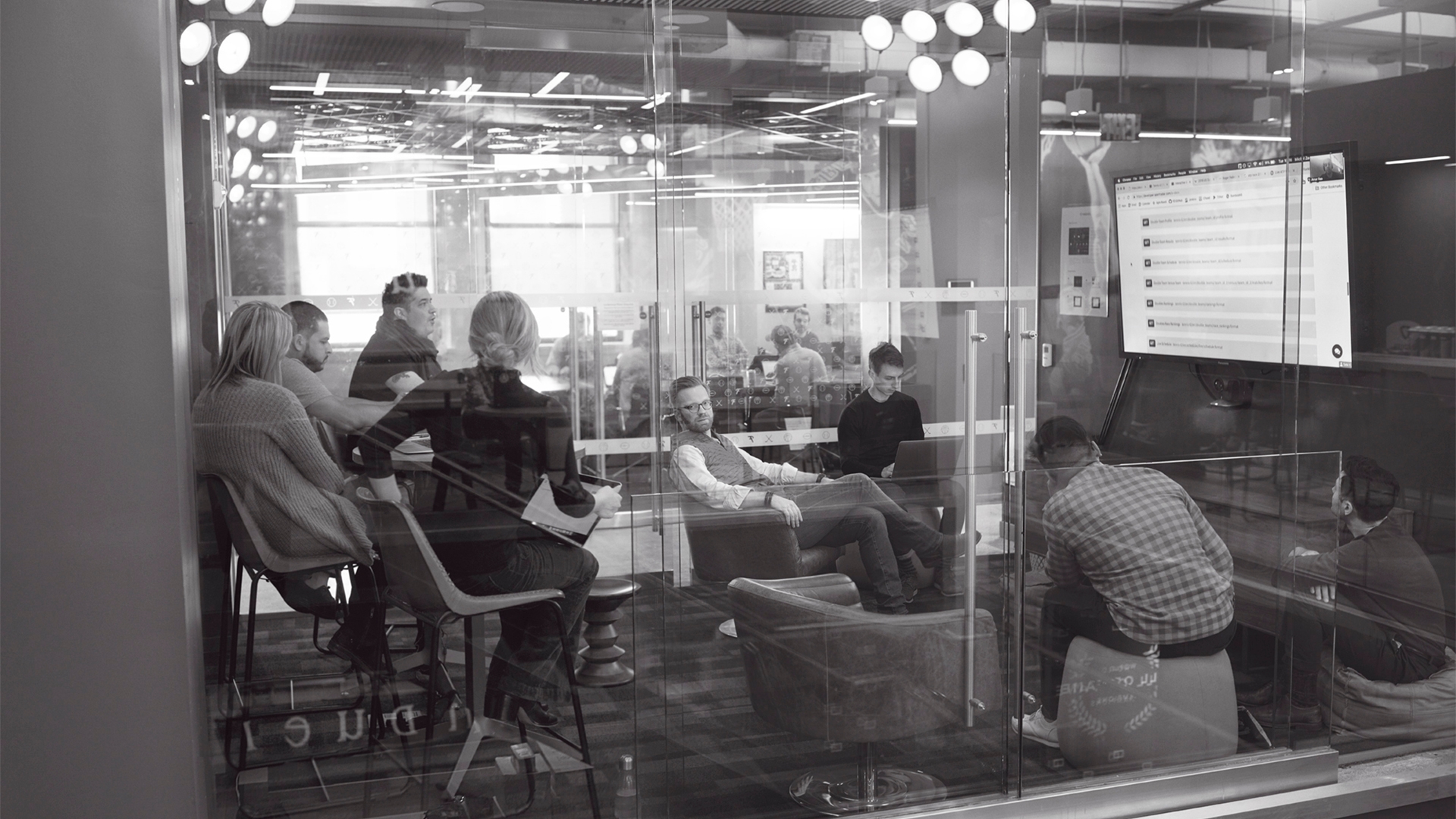
6. Supporting Employee Wellbeing
Most small- and medium-sized businesses (SMBs) have taken concrete actions to enhance employee wellbeing during the COVID-19 pandemic. The most common and effective of these actions has been allowing for the flexibility to balance the new work/home life conditions. All things considered, the majority of SMB employees remain optimistic in light of the pandemic.








